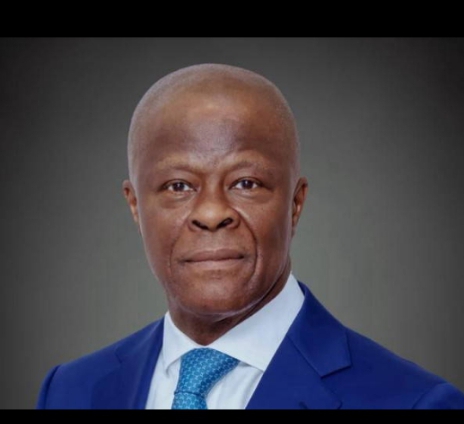The Federal Government has reaffirmed its commitment to alleviating poverty and cushioning the effects of ongoing economic reforms through the expansion of its direct cash transfer programme.
This disclosure was made by the Minister of Finance and Coordinating Minister of the Economy, Mr. Wale Edun, at the Oxford Global Think Tank Leadership Conference and Book Launch held in Abuja on Tuesday.
Mr. Edun noted that the initiative, which currently benefits over 15 million poor and vulnerable households across the country, will be scaled up to include more Nigerians at the grassroots level.
According to the Minister, the Federal Government remains focused on ensuring that the pains of ongoing economic reforms are mitigated through transparent and accountable interventions.
“There is an attempt to ensure that the pains of reform are immediately alleviated.
That’s why there is a transparent, accountable, and robust system of providing direct payments to 15 million households,” he stated.
Mr. Edun further explained that the digitalized cash transfer system ensures full accountability, as each beneficiary is identified by name, national identity number (NIN), and is paid directly into a verified bank account or mobile wallet.
“In some areas where people say they haven’t heard of anyone receiving the payments, we immediately call for the data to verify this.
Every individual on the list is digitally captured and traceable.
There is accountability, transparency, and a record,” he emphasized.
The Minister also revealed that the Federal Government is introducing a new ward-based development initiative designed to channel resources directly to Nigeria’s 8,809 wards across the 774 local government areas.
He explained that the new framework will empower economically active citizens—particularly small businesses and cottage industries—by providing financial support at the local level.
“This initiative will ensure that the benefits of the current reforms reach the grassroots and strengthen inclusive economic growth nationwide,” Mr. Edun added.
Speaking at them same event, Dr. Arunma Oteh, Founder of the Oxford Global Think Tank Leadership, called for increased infrastructure investment and the adoption of patient capital to drive sustainable growth.
Dr. Oteh emphasized that Nigeria must raise infrastructure spending to 12 percent of GDP to close the existing gap and boost productivity.
“China, over the years, invested 24 percent of its GDP in infrastructure. At best, we do 4 to 5 percent.
If we want to bridge the infrastructure gap, we must raise this to at least 12 percent,” she said.
She also underscored the need to equip young Nigerians for leadership, stressing that sustained investments in human capital and infrastructure are critical to achieving long-term economic transformation.
The conference brought together key policymakers, thought leaders, and development partners to deliberate on strategies for inclusive economic growth and sustainable development in Nigeria.
By Sophina Ovuike.

























